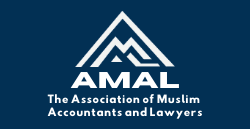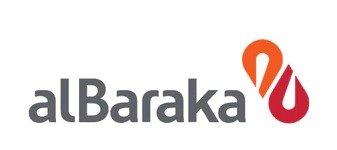Zakah Treatment of Shares in
A. Investments in Listed Companies (including UNLISTED PROPERTY SYNDICATION COMPANIES) and
B. Ownership of Unlisted Companies
Introduction
- Zakaatable assets are gold, silver, cash, sound (collectable) book debts and stock, which are deemed by the Shariah ( as growth assets) to be subject to Zakah under all circumstances, whether productively employed in commerce or not. اذا ظهر النماء او لم يظهر لان السبب قد يتحقق راجع: البناية فى شرح الهداية
- Any other asset, including , without limitation, buildings, plant, machinery and equipment, are exempt from Zakah, unless such asset was acquired , at the time of purchase, for the primary intention of resale, and as such constitutes trading stock, in the hands of the owner, as at the Zakah valuation date, at the end of the relevant Zakah year. الاصل ان ما سوى الاثمان من الاموال لا تجب فيه الزكاة الا بإعداده للتجارة و نواه للتجارة.
- If the underlying assets of a specific company are exempt from Zakah, then Zakah is payable on the dividend income, or the unexpended remainder thereof, ( cash balance) , which is added to the aggregate value of the Zakaatable assets on the Zakah valuation date, at the end of the relevant Zakah year: gold + silver +cash +book debts +stock- less allowable liabilities: 2.577% ( to cover lunar year). و اذا لم يكن لدى الشركة موجودات الزكوية فانه يزكى ما يبقى من صافى الايراد فى نهاية الحول : الشركة
A. Investments in Listed Companies (including UNLISTED PROPERTY SYNDICATION COMPANIES)
- Ownership of a share in the issued share capital of a listed company, whose core activity is halaal, represents, in substance, from a Shariah perspective, a pro rata undivided share in the underlying assets of that company, which may comprise of Zakaatable or non – Zakaatable assets, or, a combination of both. يمثل السهم حصة شائعة في موجوداتها الزكوية….. و محل العقد عند تداول الاسهم هو هذه الحصة الشائعة .
- The shareholder should, by reference to the last available financial statements, identify and reasonably estimate the value of the underlying Zakaatable assets, (gold + silver + cash + book debts + stock) and deduct therefrom those specific liabilities incurred in respect of financing only Zakaatable assets, on the Zakah valuation date, at the end of the relevant Zakah year.
- If the shareholder is unable to do so, for whatever reason, the shareholder should then pay Zakah on the market value of the share, as at the Zakah valuation date, at the end of the year. الاستثمارات في الأسهم فغرض الاحتفاظ بها ( النماء : اذا امكن عن طريق الشركة معرفة ما يخص السهم من الموجودات الزكوية: النقود و عروض التجارة و الديون المرجوة السداد فانه يزكى ذالك.
- Shares in a listed company therefore acquired with the primary intention to resell at a profit (and not to hold as an investment for capital gain or growth) constitutes stock in trade, with the result that Zakah is payable thereon on the Zakah valuation date, at the market value thereof.
من اشترى اسهمه بنية التجارة فانه تجب عليه زكاة عروض التجارة، حسب قيمتها السوقية،
وأما المساهم المستثمر ، الذى لا يقصد بشرائها المتاجرة و المضاربة فيها، و إنما قصد الاستثمار طويل الأجل ، فانه يؤدي الزكاة عن موجودات الشركة الزكوية
فقط. - Shares in a listed company acquired with the primary intention to hold as an investment for capital gain or growth and dividend income, is subject to Zakah, by reference to their last available financial statements, by identifying and reasonably estimating the value of the underlying Zakaatable assets (gold + silver + cash + book debts + stock), and deducting therefrom those specific liabilities incurred in respect of financing only Zakaatable assets, on the Zakah valuation date, at the end of the relevant Zakah year.
- If the shareholder sells the shareholder’s shares, during the course of the year, then the proceeds thereof, or, the unexpended remainder, ( cash balance) , at the end of the Zakah year, is added to the aggregate value of the shareholder’s other remaining Zakaatable assets, and will be subject to Zakah. اذا باع المساهم اسهمه في اثناء الحول ضم ثمنها الى ماله الزكوية و زكاه معه عندما يجيء حول زكاته
It goes without saying that in a property syndication or property unit trust or REIT, the underlying buildings are exempt from Zakah, unless the shares or units therein were acquired for trading purposes ( with the intention to resell) and therefore constitute stock.
B. Ownership of Unlisted Companies
- Ownership of a share in the issued share capital of an unlisted company , whose core activity is halaal, represents, in substance, from a Shariah perspective, a pro rata undivided share in the underlying assets of that company, which may comprise of Zakaatable or non – Zakaatable assets, or, a combination of both. يمثل السهم حصة شائعة في موجوداتها الزكوية….. و محل العقد عند تداول الاسهم هو هذه الحصة الشائعة .
- The shareholder should, by reference to the last available financial statements, identify and reasonably estimate the value of the underlying Zakaatable assets (gold + silver + cash + book debts + stock) and deduct therefrom those specific liabilities incurred in respect of financing only Zakaatable assets, on the Zakah valuation date, at the end of the relevant Zakah year.
- Zakah may be paid by the shareholder, in that capacity, pro rata to shareholding, (Hanafi school), or, by the company as a separate legal entity (in substance, upon the partnership principle), if the shareholders resolve to do so. The other schools (mazaaib) treat the assets of a partnership, held in co-ownership, by the partners, as the (notional) property of a single owner, (analogous to a legal person) for Zakah purposes. و تفسير ذالك ان مالكا و الشافعى و اكثر فقهاء الامصار اتفقوا على أن الخلطاء يزكون زكاة المالك الواحد. راجع بداية المجتهد.
- In relation to a subsidiary company, the subsidiary (as a separate legal entity) may calculate and pay its own Zakah. If so, then, no Zakah is payable by the holding company on its investment value in the subsidiary company. If not, then the holding company must determine its pro rata share of Zakaatable assets in the subsidiary, on the same basis as stated in paragraph 11 above, and pay Zakah thereon.
- If the shareholder sells his or her shares , during the course of the year, then the proceeds thereof, or, the unexpended remainder, ( cash balance) at the end of the Zakah year, is added to the aggregate value of the shareholder’s other remaining Zakaatable assets, and will be subject to Zakah. اذا باع المساهم اسهمه في اثناء الحول ضم ثمنها الى ماله الزكوية و زكاه معه عندما يجيء حول زكاته.
- The aforegoing approach is consistent with the relevant resolutions of the distinguished International Islamic Fiqh Academy: resolutions number:28/3/4 and 121/3/13, and those of the eminent Al Baraka, 31st Islamic Economics Symposium (31/1).
واللة اعلم بالصواب.
And Allah Knows Best
M S Omar
Durban
Updated: 01 January 2024

















